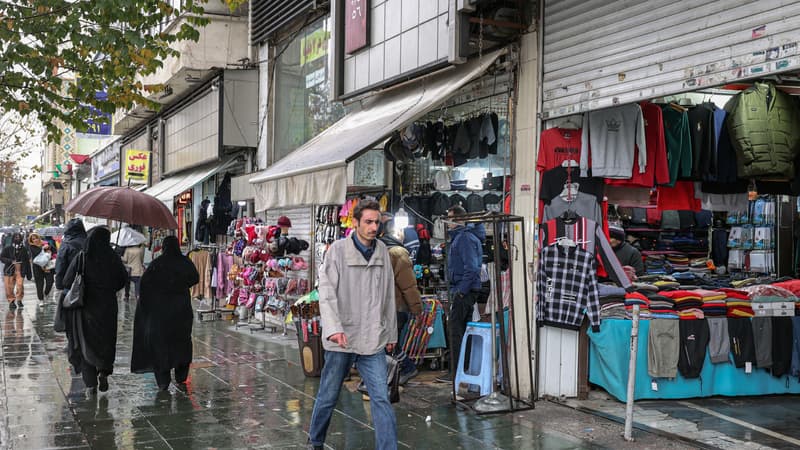A simple ad effect? The Iranian prosecutor announced on Saturday night the dissolution of the moral police, reported on Sunday by the Isna news agency. However, this ambiguous statement, according to some experts, sounds more like a means of distraction, while protest movements against Tehran continue in the country, killing several hundred people.
“The vice police… have been abolished by those who created them,” said Attorney General Mohammad Jafar Montazeri.
The announcement comes as authorities have expressed their willingness to re-examine Iran’s 1983 mandatory headscarf law and as protests have rocked the country since the death of Mahsa Amini, a young Kurdish woman who She died after being detained by the moral police. The latter accused him of having violated the strict dress code of the Islamic Republic.
The vice police, created by the Supreme Council of the Cultural Revolution under ultra-conservative President Mahmoud Ahmadinejad, began patrolling in 2006 with the aim of enforcing Iran’s strict dress code.
“ambiguous” comments
If the announcement of the disappearance of the moral police might give the impression that Tehran is making a concession to the protesters, some experts are moderate.
Journalist and former Iran correspondent Sara Saidi told BFMTV.com that the Attorney General’s statements during the announcement, made in the context of a religious conference, are “ambiguous” as it mentions both the abolition of the moral police, but it also affirms that behavior control will always be possible.
Historian Jonathan Piron goes even further. According to him, Mohammad Jafar Montazeri did not make any announcements about the moral police. It is a “misinterpretation of a statement” from the Attorney General’s Office, he tells us.
The Iranian prosecutor would only have mentioned the fact that “the morality police are less present in the streets since the demonstrations”, but would not have announced their dissolution, suggests the researcher associated with Etopia, Center for Animation and Research in Political Ecology.
A “lure”?
The two specialists in Iran also point out that the fact that the announcement of this dissolution is made by the Attorney General of Iran seems surprising.
“The morality police are not within their competence”, emphasizes Jonathan Piron. The unit depends on the government and not on the judiciary, which is not in a position to decide on its abolition.
Furthermore, the announcement was not confirmed at the time by the Iranian political authorities. Therefore, there is a vagueness about the expected consequences of this announcement.
This statement is actually just a “decoy”, cut Sara Saidi. For the journalist, the hypothetical end of the moral police would have no consequences on the lives of Iranians, the program could be transferred to another service.
“The use of the veil is still mandatory,” recalls Jonathan Piron.
A “detour” message to the West
Why then such comments? According to the former correspondent in Iran, this is in no way a gesture towards the protesters in the country. “It’s to create a distraction,” she says.
The measure, whether or not effective in the future, is, according to her, a message for Westerners, as long as anger does not subside in the country. “It’s a manipulation strategy to say ‘we’re letting go’”, she analyzes.
The United States is also cautious. “There is no evidence that Iranian leaders are improving the way they treat women and girls or stopping the violence they inflict on peaceful protesters,” the Foreign Ministry spokesman said on Monday of the “ambiguous claims or lazy” from Tehran.
An announcement out of step with the demands of the protesters
The announcement did not arouse much reaction in Iran. For the journalist, the declaration comes “too late” and no longer corresponds to the demands of the protesters for whom the time for reforms is over and wants profound changes in society.
“They want an Iranian Republic and not an Islamic Republic,” explains Sara Saidi, who recalls in passing that the abolition of the moral police has never been demanded by the protesters.
“Their demands go far beyond the use of the veil, it is the ideology (of the Islamic Republic) that is at stake,” he said.
Meanwhile, he believes that there is “nothing” to expect from this announcement, made the eve of a new call for demonstrations. A three-day general strike will also begin in Iran on Monday.
The Supreme National Security Council said on Saturday that “more than 200 people” have been killed in two and a half months of protests. The Revolutionary Guard, the ideological army of Iran, speaks of more than 300 deaths.
Source: BFM TV


